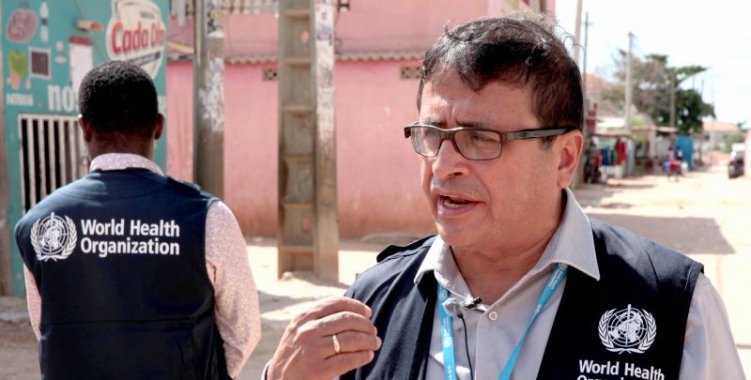"It is a very adequate measure," he said in an interview to Lusa regarding the state of emergency declared by Angola, which started at 00:00 on Friday and runs until 23:59 on 11 April.
"I would say that, in general, the 'performance' of containment was quite good, Angola was one of the last countries to present cases and the number of cases was lower compared to other countries in Africa," said the epidemiologist.
Angola currently records seven cases of infection with the new coronavirus. With regard to containment measures, he pointed out that they allow "improving preparedness", but recalled that the problem continues worldwide.
"It is important to recognize that transmission is present" so efforts must be "intensified more than ever", he stressed.
Asked about Angola's degree of preparedness to face the pandemic, Javier Aramburu, said that "no country is fully prepared and that is a challenge for the authorities".
He stressed that the degree of effort that has been made by Angola "is great", but "is not enough", because it is decisive that the main objectives are reached. "We are all involved and we are ready to support Angola", he stressed.
WHO has supported the country in different areas, from diagnostic validation, to the availability of tests, but also with regard to technical standards of reference and technical assistance, under which Angola already has a prevention and control specialist of diseases.
Javier Aramburu indicated, on the other hand, that the WHO strategies are essentially aimed at medical personnel not being infected, but admitting scarcity of means.
"Despite efforts to obtain bio-security means and social protection equipment for medical personnel, globally there is a shortage. We must not forget that they have to be changed every day, several times, so that the personnel are protected ", he recalled, hoping that in the near future it will be possible to improve the supply of this type of products with support from the United Nations.
It would also be important to increase the number of tests, but "in general, countries have not had the ideal conditions", he added, explaining that these are molecular tests that need sophisticated equipment and well-trained personnel to handle them.
"The WHO tests had problems, including logistical ones, worldwide, due to the restrictions imposed on the airlines themselves", he added, referring that the government is studying other testing options.
The WHO representative also noted that technological development has enabled the use of "more portable equipment", which will be a decisive contribution to decentralize and increase the number of tests.
"The key point is to decentralize so that it is not only in Luanda and that they are also done in other parts of the country", he concluded, adding that this is an "aspect that can be improved".







